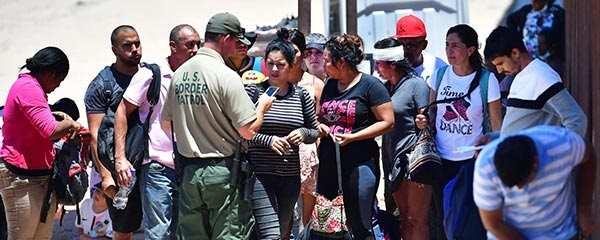WASHINGTON, D.C. -- Less than one year into President Barack Obama's administration, many foreign policy objectives are still works in progress. Â鶹´«Ã½AV finds, however, that in Latin America, Obama is enjoying improved perceptions of U.S. leadership. Â鶹´«Ã½AV surveyed across the region between July and September 2009 and found regional median approval of U.S. leadership at 51%, up significantly from the previous three years.

Median disapproval of U.S. leadership, which remained relatively steady between 2006 and 2008, decreased over the past year from a median of 30% in 2008 to 18% in 2009. A median of 3 in 10 respondents (29%) in 2009 did not express an opinion.
A New Chapter
Even before assuming the presidency, then President-elect Obama declared in January 2009 that his administration would write in "a new chapter" in U.S.-Latin America relations. As president, Obama twice interacted with Latin American leaders on a global stage. In the first -- April's Summit of the Americas in Trinidad and Tobago -- political pundits such as Time magazine and The Times praised Obama for his commitment to strengthening U.S.-Latin America partnerships, particularly with Venezuela and Cuba. In the second, Obama supported international mediation during Honduras's ongoing leadership struggle. And while the Honduran crisis is not yet completely reconciled, Obama sent senior American officials to help broker an agreement and pave the way for the recent election.
In addition to asking about approval of U.S. leadership more broadly, Â鶹´«Ã½AV surveys in Latin America also asked respondents specifically whether they approved or disapproved of Obama's job performance. Â鶹´«Ã½AV asked the question in 17 countries and found a median of 61% of respondents approved, while 14% disapproved and 27% did not express an opinion.

Mexicans', Colombians', and Brazilians' Opinions of Obama
Latin America expert Otto Reich warned Obama early into his presidency to carefully differentiate between nations that are either friendly or hostile toward the United States. Reich named Mexico and Colombia as examples of friendly nations who collaborate with the United States to combat drug trafficking and crime. These two nations -- along with Brazil -- are also among the United States' leading trading partners in the region.
In all three countries, a majority of respondents approved of Obama's job performance. In Colombia, nearly 7 in 10 approved and 9% disapproved.

In all three countries, the percentages approving of U.S. leadership significantly increased between 2008 and 2009. For instance, approval percentages doubled from 24% to 53% in Mexico and from 23% to 48% in Brazil.
Venezuelans Give Obama the Benefit of the Doubt?
When Reich named hostile countries in Latin America, he singled out Venezuela. Whereas Venezuelan President Hugo Chavez had nicknamed former President George W. Bush "Satan," Chavez was receptive to Obama during the Summit of the Americas, reportedly telling Obama he wanted to be his friend. However, Chavez did not welcome , which may jeopardize U.S.-Venezuela relations.
Â鶹´«Ã½AV results show that Venezuelans may be giving Obama the benefit of the doubt: 48% of Venezuelans approved of Obama's job performance in 2009, while 23% disapproved and 29% did not state an opinion.

Further, 50% of Venezuelans approved when asked more generally about the job performance of U.S. leadership in 2009, up from 35% in 2008 and 27% in 2007.
One explanation for the boost in attitudes could be that without the famously antagonistic relationship between Chavez and Bush, anti-American sentiment and "Chavismo" in general is .
To note, Venezuela has long been one of America's main trading partners as well as one of the top five countries from which America imports crude oil.
Across the Region
Approval ratings of U.S. leadership in each country in Latin America vary from a high of 68% in El Salvador to 40% in Bolivia.

Approval ratings specifically of Barack Obama vary from a high of 84% in El Salvador to 40% in Paraguay. Â鶹´«Ã½AV did not ask respondents specifically about Bush in 2008.

Future of U.S.-Latin America Relations
Obama is not the first U.S. president to promise a new era of U.S.-Latin America relations; George W. Bush made a similar promise. However, Â鶹´«Ã½AV currently finds Latin Americans fairly hopeful in this regard. When asked if they think U.S.-Latin America relations will strengthen, remain the same, or weaken under Obama, a median of 42% said relations would strengthen and 28% said they would remain the same. A median of 6% said they would weaken.

To see all countries worldwide for which 2009 U.S. approval data are available, see the updated map and table on the .
For complete data sets or custom research from the more than 150 countries Â鶹´«Ã½AV continually surveys, please contact worldpollpartners@gallup.com or call 202.715.3030.
Survey Methods
Results are based on face-to-face interviews with at least 1,000 adults, aged 15 and older, conducted between July and September 2009 in Argentina, Bolivia, Brazil, Chile, Colombia, Costa Rica, Ecuador, El Salvador, Guatemala, Honduras, Mexico, Nicaragua, Panama, Paraguay, Peru, Uruguay, and Venezuela.
For results based on the total sample of national adults, one can say with 95% confidence that the maximum margin of sampling error ranged from a low of ±3.3 percentage points in Brazil to a high of ±4.0 percentage points in Venezuela. The margin of error reflects the influence of data weighting. In addition to sampling error, question wording and practical difficulties in conducting surveys can introduce error or bias into the findings of public opinion polls.
